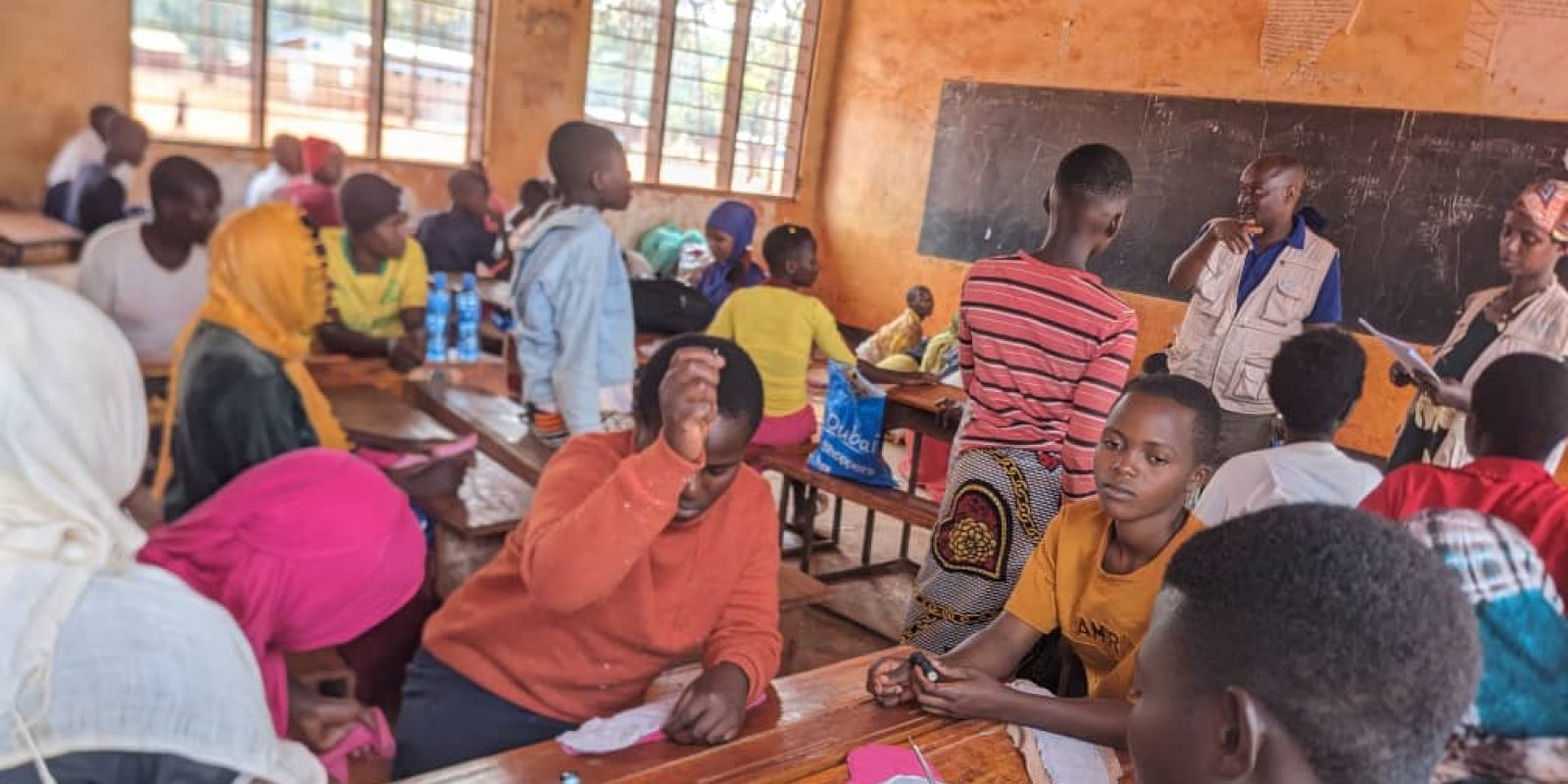Offering Relief Items to Vulnerable Displaced People in South Sudan
25 February 2026|Paula Casado Aguirregabiria
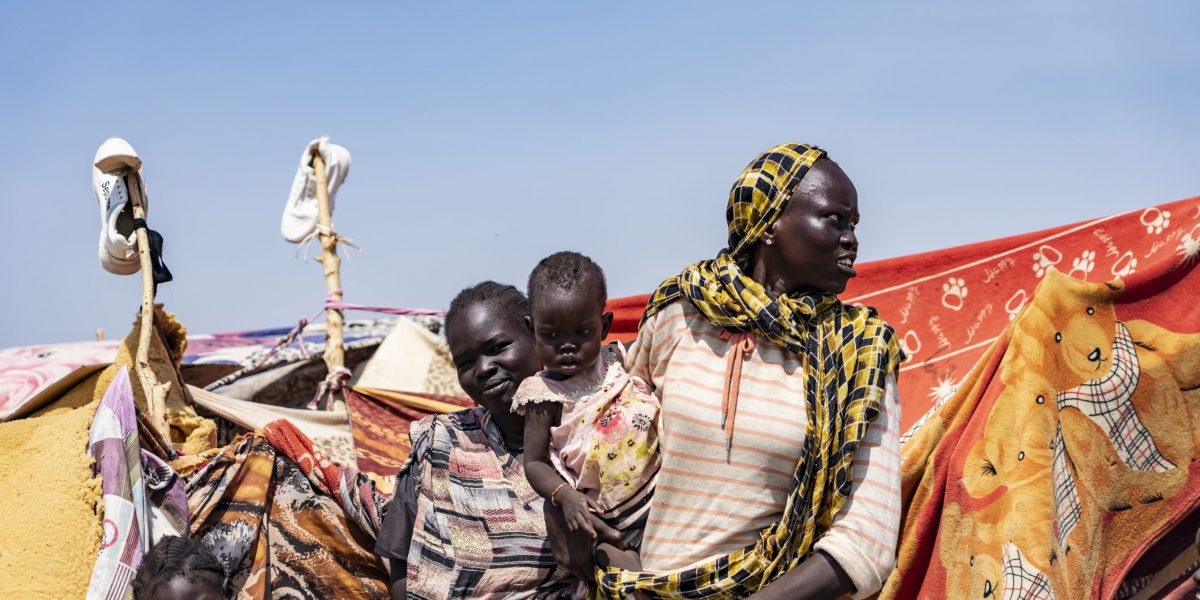
It has been nearly two months since bombs started falling into Khartoum, Sudan’s capital city.
The violent confrontations between the government forces and the paramilitary groups had pushed people to run away in search of peace and security, most of the times, carrying the little they could and leaving most of their belongings behind.
According to UNHCR and IOM data, nearly 90,000 people have crossed to South Sudan, being Renk the main point of entry. And there are some hundreds of thousands more awaiting just in the other side of the Sudanese border.
JRS has mobilised part of their team in Maban (northern South Sudan) to Renk, Sudan’s border, to respond to the increasing needs of displaced population arriving.
The conditions in which these displaced people find themselves in Renk are miserable. Poor water and food provision, inappropriate hygiene conditions, lack of services, or delay in medical treatments are just some of the challenges people are facing on arrival. The needs of the people are bigger than the capacity of NGOs to respond to it.
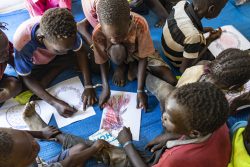 As JRS, together with our partners in the ground, we are working tirelessly to try to support as best as possible the continuously growing population in Renk. To offer some relief and basic services before they can continue their journey into other parts is South Sudan.
As JRS, together with our partners in the ground, we are working tirelessly to try to support as best as possible the continuously growing population in Renk. To offer some relief and basic services before they can continue their journey into other parts is South Sudan.
These last weeks, JRS has been identifying the gaps that we can fill: providing counselling and psychological first aid, basic physiotherapy services, childcare activities, facilitating referrals for GBV and other protection cases, and distributing Non-Food Items (NFIs) to the most vulnerable.
Thanks to the support of our donors, we have been able to support already more than 40 households providing soaps and sanitary materials as part of hygiene mainstreaming.
Marie (not her real name for protection issues) is one of the beneficiaries who has been receiving preliminary physiotherapy treatment and has received the sanitary material kit provided.
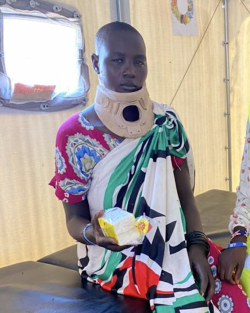
Marie is a young South Sudanese mother, 29 years old. She had been living in Khartoum for nearly 10 years when the war started. Like many others, she wanted to run away from the city, but she could not afford to pay for the bus tickets to take her and her children to the frontier.
Having two young children (8 and 12 years old), she considered walking to the frontier a too risky and dangerous journey. As a result of that, she kept doing casual jobs in the Sudanese capital to reunite the money to leave the country.
However, before she could reunite the needed money, coming back from the market with her children, they got caught up in the middle of a crossfire. She got shot in the neck, and chaos invaded the streets.She was taken to a medical facility where she could be intervened. But due to the confusion and the chaos, she lost her children. She came to Renk expecting to find them there, but she has not found them yet.
Like Marie’s case, we are planning to distribute up to 3,000 pieces of soap and sanitary materials to the most vulnerable cases identified. Due to logistical challenges, the NFI distribution has been delayed, reason why as of May 31st only 41 households have benefited yet.
We are working closely with other NGOs providing NFIs to ensure that the most vulnerable people are prioritized in its distribution.
The magnitude of this humanitarian crisis is exceeding the initial expectations of all partners in the ground. Having started with a response plan of three months, the increasing needs and the continuous of people crossing the frontier are evidencing every day more the need to extend the respond to a longer period.
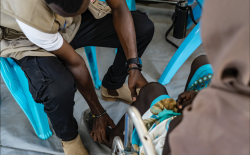
We are calculating that this operation will continue for the next 6 to 12 months. Reason why we need to plan for further resource mobilization to ensure the accompaniment of the people in need arriving to South Sudan.
Thanks to the support of our donors, we are able to offer relief services to the displaced population in Renk and Maban. But further resources will need to be mobilized if we want to continue our activities on the ground.
As always, JRS will continue their presence as long as we can, to continue to accompany, serve and advocate for the refugee and displaced populations. In South Sudan, and in all the countries where we have operations.
And this is all thanks to the unconditional support from our donors.

